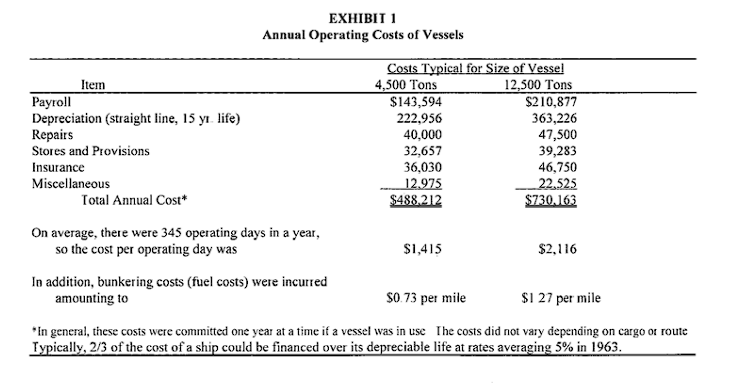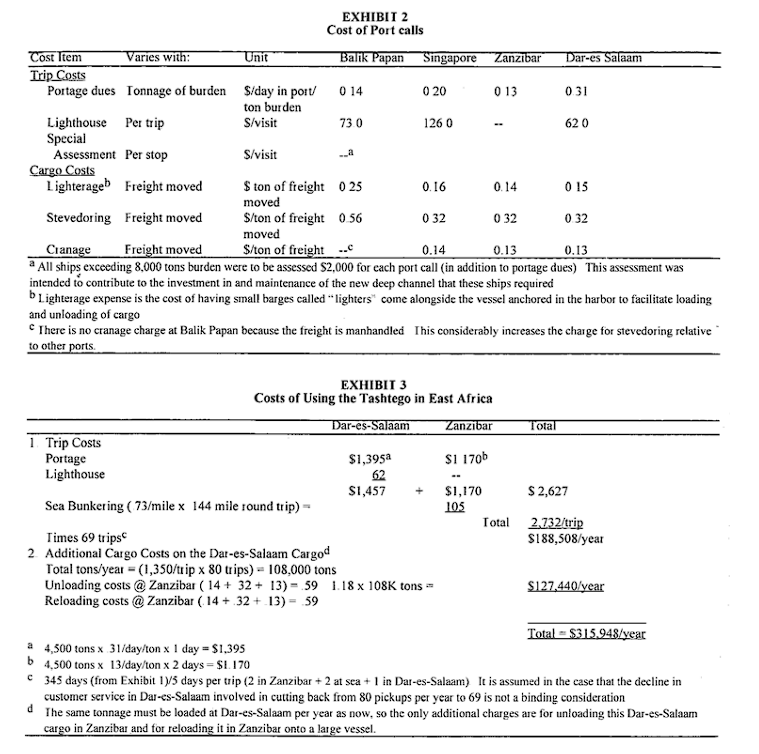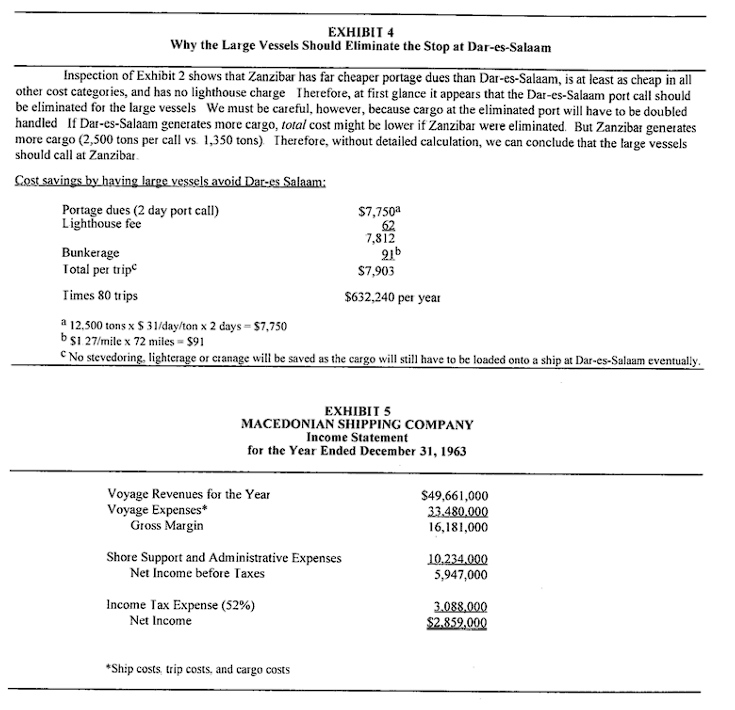Answered step by step
Verified Expert Solution
Question
1 Approved Answer
Independent of the amount and type of cargo carried, what are the incremental trip costs of sending Tashtego on a round trip between Singapore and
Independent of the amount and type of cargo carried, what are the incremental trip costs of sending Tashtego on a round trip between Singapore and Balik Papan?



EXHIBII 1 Annual Operating Costs of Vessels EXHIBII 2 Cost of Port calls all ships exceeding 8,000 tons burden were to be assessed $2,000 for each port call (in addition to portage dues) This assessment was intended to contribute to the investment in and maintenance of the new deep channel that these ships required b Lighterage expense is the cost of having small barges called "lighters" come alongside the vessel anchored in the harbor to facilitate loading and unloading of cargo c Ihere is no cranage charge at Balik Papan because the freight is manhandled Ihis considerably increases the charge for stevedoring relative to other ports. EXHIBII 3 Costs of Using the Tashtego in East Africa Inspection of Exhibit 2 shows that Zanzibar has far cheaper portage dues than Dar-es-Salaam, is at least as cheap in all other cost categories, and has no lighthouse charge I herefore, at first glance it appears that the Dar-es-Salaam port call should be eliminated for the large vessels We must be careful, however, because cargo at the eliminated port will have to be doubled handled If Dat-es-Salaam generates more cargo, total cost might be lower if Zanzibar were eliminated. But Zanzibar genetates more cargo (2,500 tons per call vs. 1,350 tons). Therefore, without detailed calculation, we can conclude that the large vessels should call at Zanzibar. Cost savings by having large vessels avoid Dat-es Salaam: b $127/ mile 72 miles =$91 c No stevedoring, lighterage or ctanage will be saved as the cargo will still have to be loaded onto a ship at Dar-es-Salaam eventually. EXHIBII 1 Annual Operating Costs of Vessels EXHIBII 2 Cost of Port calls all ships exceeding 8,000 tons burden were to be assessed $2,000 for each port call (in addition to portage dues) This assessment was intended to contribute to the investment in and maintenance of the new deep channel that these ships required b Lighterage expense is the cost of having small barges called "lighters" come alongside the vessel anchored in the harbor to facilitate loading and unloading of cargo c Ihere is no cranage charge at Balik Papan because the freight is manhandled Ihis considerably increases the charge for stevedoring relative to other ports. EXHIBII 3 Costs of Using the Tashtego in East Africa Inspection of Exhibit 2 shows that Zanzibar has far cheaper portage dues than Dar-es-Salaam, is at least as cheap in all other cost categories, and has no lighthouse charge I herefore, at first glance it appears that the Dar-es-Salaam port call should be eliminated for the large vessels We must be careful, however, because cargo at the eliminated port will have to be doubled handled If Dat-es-Salaam generates more cargo, total cost might be lower if Zanzibar were eliminated. But Zanzibar genetates more cargo (2,500 tons per call vs. 1,350 tons). Therefore, without detailed calculation, we can conclude that the large vessels should call at Zanzibar. Cost savings by having large vessels avoid Dat-es Salaam: b $127/ mile 72 miles =$91 c No stevedoring, lighterage or ctanage will be saved as the cargo will still have to be loaded onto a ship at Dar-es-Salaam eventually
Step by Step Solution
There are 3 Steps involved in it
Step: 1

Get Instant Access to Expert-Tailored Solutions
See step-by-step solutions with expert insights and AI powered tools for academic success
Step: 2

Step: 3

Ace Your Homework with AI
Get the answers you need in no time with our AI-driven, step-by-step assistance
Get Started


